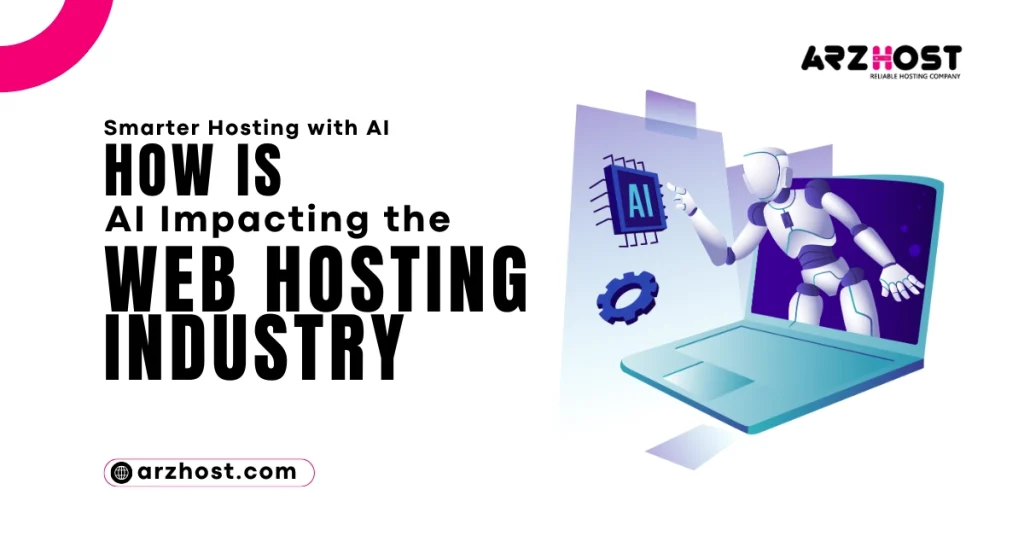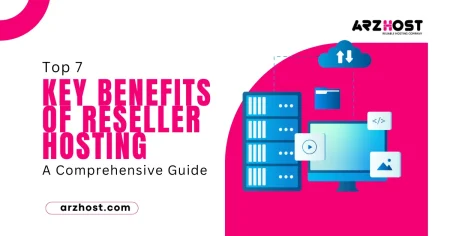Web hosting enables people, businesses, and organizations to make their websites available to Internet users. There have been a ton of new service providers since web hosting first became popular in 1995.
A web host, or web hosting company, as the newest technologies and services to improve websites and expand the online community’s digital environment.
Artificial Intelligence (AI) has made strides in computerized and internet computing. Despite its recent inception, artificial intelligence (AI) has the upper hand over computer-generated reality (CGR) and AR, or augmented reality, due to its multiple uses and applications.
Artificial intelligence (AI) is being applied in many different fields, including human resources, business management, advanced showcasing, security, and creative work. There is a wide range of possible applications and purposes for artificial intelligence.
A few of the numerous industries that have already adopted AI are healthcare, education, security, retail, and at times even web facilitating.
Artificial intelligence is the capacity for thought and learning. It is possible to identify threats and malware using artificial intelligence. This component can help businesses give their clients the greatest support possible.
It makes it possible for online service providers to monitor incomplete transactions for their customers far faster than they otherwise could. For the most part, it helps you meet and exceed your consumers’ expectations by understanding their needs. How Is AI Impacting the Web Hosting Industry?
ARZ Host examine all the ways that artificial intelligence is benefiting the web hosting industry in this blog post.
What is Artificial Intelligence?
Artificial intelligence (AI) refers to the ability of machines to exhibit human-like intelligence. This includes the ability to learn, reason, solve problems, and perceive the world. AI is a broad field encompassing various approaches, like machine learning, deep learning, and natural language processing.
These techniques enable machines to analyze data, identify patterns, and make predictions or decisions without explicit programming.

The impact of AI is already being felt across diverse sectors. In healthcare, AI-powered systems are assisting doctors in medical diagnosis and treatment planning. In finance, AI algorithms are used for fraud detection and risk assessment.
In transportation, self-driving cars and drones are being developed, powered by AI algorithms for navigation and decision-making.
The potential of AI extends beyond these immediate applications. AI research is exploring areas like general intelligence, where machines could potentially attain human-level or even superhuman intelligence.
This raises both exciting possibilities and ethical concerns. The future of AI will depend on how we develop and deploy this technology responsibly, ensuring it benefits humanity while mitigating potential risks.
Here are a few key things to understand about AI:
- Simulation of human intelligence: AI systems don’t necessarily “think” like humans, but they can mimic intelligent behavior by processing information, learning from experience, and adapting to new situations.
- Different types of AI: There are various approaches to achieving AI, including machine learning, deep learning, and natural language processing. Each has its own strengths and weaknesses, suitable for different types of tasks.
- Not necessarily conscious: While the concept of AI often conjures up images of self-aware robots, most current AI systems are not conscious. They are sophisticated tools that can perform specific tasks very well, but they don’t have the general intelligence and understanding of the world that humans do.
Think of AI as a spectrum of capabilities, ranging from simple rule-based systems to more complex algorithms that can learn and adapt.
While we haven’t achieved true artificial general intelligence (AGI) yet, which would be on par with human intelligence, AI is already having a profound impact on our lives in various fields like healthcare, finance, transportation, and entertainment.
Let’s examine how artificial intelligence is advancing the web hosting sector.
1: Improved Security
The frequency of cyberattacks is rising daily, which makes website owners more watchful of their online businesses. By circumventing the algorithm, these scammers are attempting to gain access to the website network.
Web hosting providers benefit from artificial intelligence in terms of rapid response times to malware attacks. Artificial intelligence makes use of sophisticated firewall technology to detect encrypted patterns and potential security risks. AI notifies the web hosting provider and its customers about the potential harm that a bug or malware may do as soon as it is discovered.
AI also assists with data processing and analysis, which takes time. AI uses machine learning to use what it has learned to strengthen its defenses and to predict future attacks.
The cyber landscape is rife with threats, but AI-powered defenses are rising to the challenge. Security features powered by AI include:
- Advanced threat detection: AI algorithms continuously analyze website traffic and server logs, identifying anomalous patterns and identifying potential malware, DDoS attacks, or suspicious activity. This proactive approach can nip security threats in the bud before they cause harm.
- Automated patching and updates: AI can monitor software vulnerabilities and automatically apply security patches, ensuring websites stay protected against the latest exploits.
- Bot mitigation: AI-powered bot detection systems can distinguish legitimate users from malicious bots, safeguarding websites from spam, brute-force attacks, and fraudulent activity.
2: Boost Domain Performance
One of the most important things for a website to function is a domain name. Artificial Intelligence (AI) can be used to detect instances of duplicate domain purchases or attempts to use our domain through proxy servers.
It also notifies the client in the event that someone tries to clone our domain or set up a fake website. The client’s reputation and domain are safeguarded by this function.
AI can read and decode patterns in data and, if necessary, add new patterns to the existing ones. AI analyzes the current web data to assist businesses in identifying high traffic and conversion rates inside their domain. Customers’ ROI and productivity may both rise as a result of this functionality.
Gone are the days of static server configurations struggling to adapt to dynamic website traffic. AI-powered hosting now employs intelligent algorithms that:
- Predict traffic patterns: AI analyzes historical data and web performance trends to anticipate traffic spikes and allocate resources efficiently. This proactive approach prevents sluggish websites and server crashes during peak hours.
- Optimize resource utilization: AI algorithms constantly monitor server and resource usage, dynamically scaling them up or down as needed. This translates to reduced costs for both hosting providers and website owners.
- Self-healing capabilities: AI systems can detect and resolve minor server issues autonomously, without requiring human intervention. This minimizes downtime and ensures consistent website performance.
3: Improve Accuracy
Artificial intelligence performs laborious jobs with the highest level of precision while making them appear simple. AI guarantees that the operation of the website won’t be hampered, even in the event of high traffic and unforeseen variations.
AI is capable of performing tasks like voice calls or message delivery, chat replies, and automatic message sending. Accordingly, AI can lessen human labor. Gone are the days of manual server optimizations and reactive troubleshooting.
AI-powered algorithms can analyze server resource usage, traffic patterns, and website code in real-time, automatically adapting configurations to ensure optimal performance.
This proactive approach minimizes downtime, reduces latency, and delivers exceptional user experiences. Predictive analytics further anticipate traffic spikes and resource demands, dynamically scaling servers to maintain peak performance without over provisioning.
4: Data-focused Reports
AI analyzes both historical and current data to support the company’s authorities in producing reports. By using the previously mentioned methodology, AI can also account for the report’s modifications.
Through analysis of buy rates, recurring rates, purchase costs, and other data, AI also helps web hosting providers identify their most loyal customers.
AI is playing a crucial role in transforming customer support within the web hosting industry. Chatbots powered by natural language processing (NLP) can answer basic questions and resolve common issues 24/7, providing immediate assistance to clients without the need for human intervention.
Additionally, AI can analyze web hosting data to generate insights on resource utilization, performance bottlenecks, and potential areas for improvement. These data-driven reports empower website owners to make informed decisions about their hosting plan and optimize their online presence.
5: Self-healing Infrastructures
Maintaining the currentness of your website and other digital data is essential in the realm of digital. It needs a lot of work. Through machine learning, artificial intelligence supports the system’s self-maintenance and repair.
Self-healing or self-repairing AI is used by hosts to scan the system and identify possible problems before they appear so that preventive action can be taken.
For example, the self-healing system moves the systems utilizing that hardware to failover servers in case it is discovered to be faulty before the hardware crashes. Maintaining uptime of the system can be helped by this functionality.
AI is also helpful for getting updates and modifications through machine learning. The web hosting team gets notified if a serious problem occurs with the self-healing system that AI is unable to resolve.
By giving web hosting providers more time to enhance their service performance, AI not only offers a more robust service but also lessens the maintenance load on our web host.
Advantages and Disadvantages of AI in Web Hosting Industry
The web hosting industry, like most others, is witnessing a transformative wave of artificial intelligence (AI). While once relegated to science fiction, AI is now rapidly reshaping the landscape, bringing both incredible potential and unforeseen challenges.

Let’s delve into the advantages and disadvantages of AI in web hosting, helping you navigate this brave new world.
Advantages of AI in Web Hosting:
- Enhanced Security: AI-powered security systems can analyze vast amounts of traffic data in real-time, identifying and swatting away threats like DDoS attacks and malware infections before they wreak havoc. This proactive approach significantly reduces downtime and keeps websites safe and secure.
- Optimized Performance: AI algorithms can monitor server resources and traffic patterns, dynamically adjusting resource allocation to ensure optimal performance. This translates to faster loading times, smoother user experience, and improved SEO rankings.
- Automated Maintenance: AI can automate tedious tasks like server updates, patch installations, and routine backups, freeing up human resources for more strategic initiatives. This leads to increased efficiency, cost savings, and reduced human error.
- Personalized Customer Support: AI chatbots can provide instant 24/7 support, answering basic questions, addressing common issues, and even escalating complex problems to human agents. This improves customer satisfaction and reduces support costs.
- Predictive Analytics: By analyzing historical data and current trends, AI can predict future resource needs, potential outages, and even customer churn. This empowers web hosting providers to proactively scale resources, prevent downtime, and retain customers.
Disadvantages of AI in Web Hosting:
- Initial Investment: Implementing and maintaining robust AI systems can be expensive, especially for smaller web hosting providers. This initial hurdle can limit wider adoption in the industry.
- Algorithmic Bias: AI algorithms are only as good as the data they are trained on. Biases in training data can lead to discriminatory or unfair outcomes, like biased resource allocation or inaccurate threat detection. Addressing these biases is crucial for ethical and effective AI implementation.
- Lack of Transparency: Understanding how AI algorithms make decisions can be challenging. This lack of transparency can raise concerns about accountability and trust, especially when dealing with sensitive customer data.
- Job Displacement: Automation through AI can lead to job losses in traditional IT roles, particularly in server management and routine maintenance. Reskilling and upskilling programs are necessary to help displaced workers adapt to the changing landscape.
- Data Privacy Concerns: AI systems rely heavily on data to function effectively. This raises concerns about data privacy and security, requiring robust data governance practices and clear user consent procedures.
While AI presents both exciting opportunities and potential pitfalls, responsible development and implementation are key to harnessing its power for the good of the web hosting industry.
Striking a balance between automation and human expertise, embracing ethical data practices, and ensuring transparency in decision-making processes will be crucial for shaping a future where AI empowers both web hosting providers and their customers.
Remember, AI is not a replacement for human intelligence, but rather a powerful tool to augment it. By collaborating with AI, web hosting providers can navigate the ever-evolving digital landscape, offering their customers secure, reliable, and efficient services, paving the way for a brighter future for the web.
Conclusion
Hence, machine learning and artificial intelligence are having a significant impact on the transportation, health, and finance sectors. Website proprietors can manage higher-quality websites with the use of artificial intelligence.
AI in web hosting means improved security, cost-effective domain names, and automatic upkeep and repair of the technologies that power the website. AI can also strengthen our website’s defenses against malware and hackers.
By utilizing machine learning, it can decrease the need for human labor to make decisions, and perform autonomous actions in the hosting sector.
FAQS (Frequently Asked Questions)
How is AI improving website performance?
AI-powered hosting utilizes algorithms to analyze website traffic patterns and predict resource needs. This allows for dynamic server scaling, automatically adjusting resources up or down to handle fluctuations. Think of it as a smart thermostat for your server, ensuring smooth operation even during peak hours. Additionally, AI can anticipate potential bottlenecks and optimize server configurations for better speed and efficiency.
Is AI making web hosting more secure?
Absolutely! AI-powered security systems can identify and thwart threats like malware attacks, DDoS attacks, and data breaches. These systems continuously learn and adapt, staying ahead of evolving cyber threats. Moreover, AI can detect suspicious activity even before it manifests, offering proactive protection rather than reactive firefighting.
Can AI help me manage my web hosting account more easily?
Yes, AI is making self-service web hosting more intuitive and personalized. Chatbots powered by AI can answer your questions and assist with basic tasks like setting up email accounts or configuring databases. These virtual assistants are available 24/7, offering instant support without waiting for human customer service. AI can also generate real-time reports with actionable insights into your website’s performance and resource usage, empowering you to make data-driven decisions about your hosting needs.
Is AI making web hosting more expensive?
While some advanced AI-powered hosting solutions may come with a premium price tag, the overall trend is towards increased cost-efficiency. By optimizing resource allocation and preventing downtime, AI can help you save money on your hosting bills. Additionally, the automation capabilities of AI can reduce the need for human intervention, lowering operational costs for hosting providers, which often translates into more competitive pricing for customers.
Does AI mean humans are going away from web hosting?
While AI is automating many tasks in the web hosting industry, it doesn’t mean human expertise is becoming obsolete. AI plays a supporting role, freeing up human technicians to focus on complex issues and strategic decision-making. The human touch still plays a crucial role in providing personalized support, interpreting nuanced data, and ensuring long-term success for website owners.









